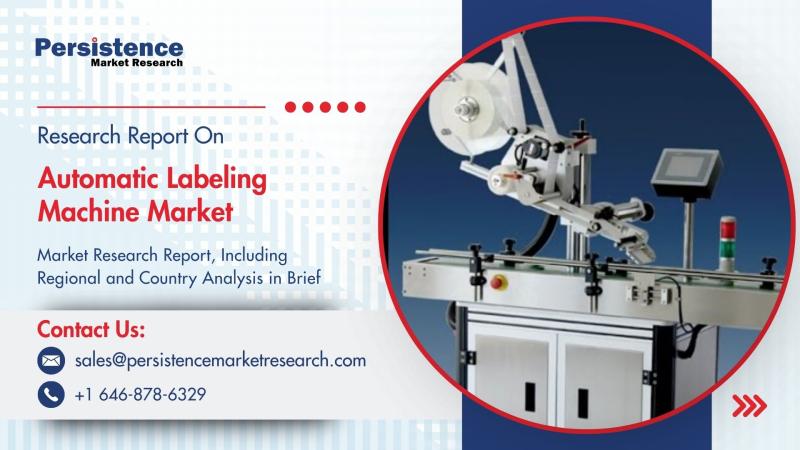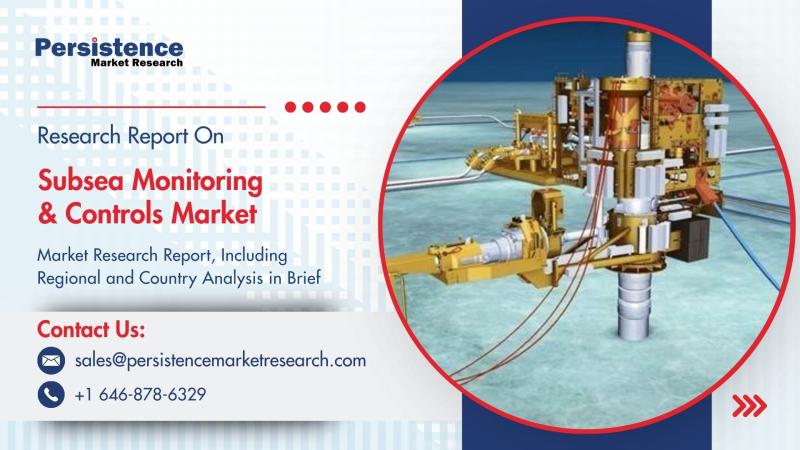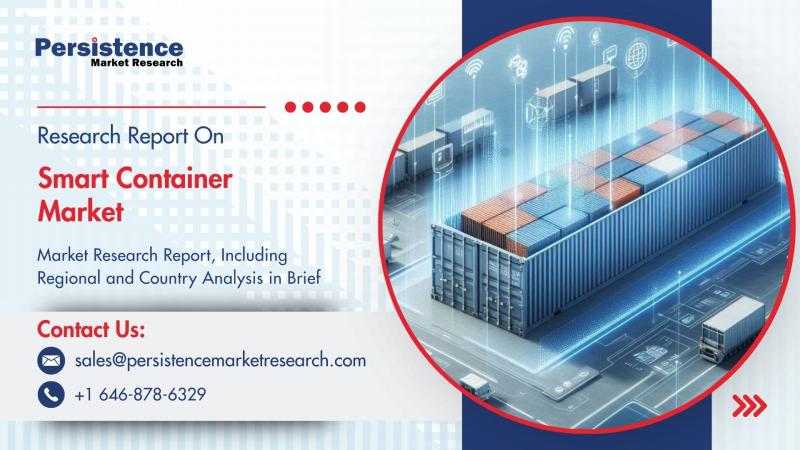Press release
Smart Container Market Expected to Surpass US$ 21.5 Bn in 2032 - Persistence Market Research
In an era where digital transformation is reshaping every industry, logistics and supply chain management are undergoing one of the most significant shifts with the rise of smart container technology. Traditional shipping containers, once considered merely passive cargo carriers, are now being enhanced with advanced technologies such as IoT (Internet of Things), GPS tracking, temperature and humidity monitoring, and blockchain integration. These innovations are not just optimizing operational efficiency but are also transforming how goods are transported across borders, ensuring visibility, security, and sustainability. The smart container market is thus emerging as a pivotal force in global trade, opening new avenues for stakeholders in shipping, logistics, retail, and manufacturing.According to Persistence Market Research's projections, the global smart container market size is likely to be valued at US$ 5.2 Bn in 2025 and is estimated to reach US$ 21.5 Bn in 2032, growing at a CAGR of 19.6% during the forecast period 2025 - 2032. This remarkable growth trajectory reflects the increasing adoption of digital supply chain solutions and the demand for real-time data analytics in international trade. Companies today want greater control over their cargo, and smart containers offer exactly that-a way to monitor location, status, and integrity of goods, regardless of distance or duration.
Get a Sample PDF Brochure of the Report (Use Corporate Email ID for a Quick Response): https://www.persistencemarketresearch.com/samples/35533
The fundamental driver of this market is the growing emphasis on visibility in global supply chains. As supply chains become more complex and interconnected, disruptions caused by geopolitical issues, pandemics, or natural disasters highlight the vulnerabilities of traditional systems. Smart containers, equipped with IoT sensors and cloud-based platforms, provide end-to-end visibility that enables businesses to anticipate delays, optimize routes, and enhance customer satisfaction. For industries such as pharmaceuticals, food and beverages, and chemicals-where product integrity is critical-these containers serve as an indispensable tool to maintain compliance with safety standards and avoid losses caused by spoilage or mishandling.
Another key growth factor is the rising focus on sustainability. Traditional logistics operations contribute significantly to carbon emissions and environmental degradation. Smart containers help reduce wastage of goods, optimize transport efficiency, and streamline operations, leading to a lower carbon footprint. By providing insights into fuel consumption, idle times, and route optimization, smart container technologies contribute to greener supply chain strategies. As sustainability regulations tighten worldwide, companies adopting smart container solutions are better positioned to align with global climate goals while improving profitability.
Moreover, the growing adoption of e-commerce and cross-border trade is driving the demand for advanced logistics solutions. With the boom in online shopping, businesses require faster, more reliable, and secure transport systems to meet consumer expectations. Smart containers make it possible to track shipments in real time, notify stakeholders about delays, and ensure the safe delivery of high-value goods. This level of transparency enhances trust between businesses and customers, which is becoming increasingly important in today's competitive retail environment.
Technological advancements are also playing a critical role in shaping the smart container market. IoT, AI, and blockchain are no longer futuristic concepts but practical tools integrated into logistics. IoT sensors embedded in containers provide real-time data on temperature, pressure, humidity, and location. Artificial intelligence (AI) helps in predictive analytics, forecasting potential risks, and recommending preventive measures. Blockchain, on the other hand, offers secure and immutable records of transactions, reducing the chances of fraud, theft, and disputes. Together, these technologies create a connected ecosystem that enhances accountability and efficiency across the shipping industry.
Regionally, the smart container market is witnessing significant growth in North America and Europe, driven by early adoption of technology, robust infrastructure, and stringent regulatory frameworks. Asia-Pacific, however, is projected to dominate the market in the coming years, owing to its expanding manufacturing base, booming e-commerce sector, and increasing investments in smart logistics infrastructure. Countries like China, India, and Singapore are leading the way in integrating digital solutions into their supply chains, offering lucrative opportunities for smart container providers. Latin America and the Middle East are also emerging markets where global trade hubs and port modernization projects are fueling adoption.
Dive deeper into the market data: https://www.persistencemarketresearch.com/market-research/smart-container-market.asp
Despite the strong growth outlook, the smart container market faces challenges such as high implementation costs and concerns regarding data security. Equipping containers with sensors and integrating them with digital platforms require significant capital investment, which can be a barrier for small and medium-sized logistics companies. Additionally, as data becomes central to logistics, concerns around cybersecurity and data privacy need to be addressed to build trust among stakeholders. However, with falling costs of IoT devices, increasing standardization, and advancements in secure cloud technologies, these barriers are likely to diminish over time.
The competitive landscape of the smart container market is characterized by the presence of both established players and innovative startups. Leading logistics technology providers are focusing on strategic partnerships, acquisitions, and collaborations to expand their offerings. For instance, collaborations between shipping lines and tech companies are helping to create integrated platforms that provide comprehensive visibility. At the same time, startups are introducing niche innovations such as specialized sensors for perishable goods or AI-driven risk management systems. This vibrant competition is fostering innovation and pushing the industry toward rapid adoption of smart solutions.
Looking ahead, the future of the smart container market appears promising and transformative. As global trade volumes increase and digitalization becomes the backbone of supply chains, smart containers are set to become the norm rather than the exception. The integration of 5G connectivity is expected to further accelerate real-time data transmission, while developments in renewable energy-powered sensors could make smart containers even more sustainable. Additionally, as more businesses adopt digital twins-virtual replicas of physical assets-smart containers will provide the data backbone needed to create accurate and actionable digital models of supply chains.
In conclusion, the smart container market represents a revolutionary shift in the way goods are transported and managed globally. By combining connectivity, visibility, and intelligence, these containers are addressing the critical challenges of modern logistics while unlocking opportunities for efficiency and growth. With strong market projections, supportive technological trends, and increasing demand for transparency and sustainability, the industry is poised for exponential growth in the coming decade. Businesses that embrace smart container technology early will not only gain a competitive edge but will also contribute to building more resilient, sustainable, and efficient global supply chains.
Explore the Latest Trending Research Report:
• Insecticide Seed Treatment Market Trends - https://www.persistencemarketresearch.com/market-research/insecticide-seed-treatment-market.asp
• Furniture Films And Foils Market Trends - https://www.persistencemarketresearch.com/market-research/furniture-films-and-foils-market.asp
• Flotation Reagents Market Trends - https://www.persistencemarketresearch.com/market-research/flotation-reagents-market.asp
Contact Us:
Persistence Market Research
G04 Golden Mile House, Clayponds Lane
Brentford, London, TW8 0GU UK
USA Phone: +1 646-878-6329
UK Phone: +44 203-837-5656
Email: sales@persistencemarketresearch.com
Web: https://www.persistencemarketresearch.com
About Persistence Market Research:
At Persistence Market Research, we specialize in creating research studies that serve as strategic tools for driving business growth. Established as a proprietary firm in 2012, we have evolved into a registered company in England and Wales in 2023 under the name Persistence Research & Consultancy Services Ltd. With a solid foundation, we have completed over 3600 custom and syndicate market research projects, and delivered more than 2700 projects for other leading market research companies' clients.
Our approach combines traditional market research methods with modern tools to offer comprehensive research solutions. With a decade of experience, we pride ourselves on deriving actionable insights from data to help businesses stay ahead of the competition. Our client base spans multinational corporations, leading consulting firms, investment funds, and government departments. A significant portion of our sales comes from repeat clients, a testament to the value and trust we've built over the years.
This release was published on openPR.
Permanent link to this press release:
Copy
Please set a link in the press area of your homepage to this press release on openPR. openPR disclaims liability for any content contained in this release.
You can edit or delete your press release Smart Container Market Expected to Surpass US$ 21.5 Bn in 2032 - Persistence Market Research here
News-ID: 4204184 • Views: …
More Releases from Persistence Market Research

Automatic Labeling Machine Market to Reach US$4.0 Bn by 2032 - Persistence Marke …
The automatic labeling machine market is witnessing steady growth as industries across food & beverage, pharmaceuticals, cosmetics, consumer goods, and logistics increasingly adopt automation to improve efficiency, reduce labor costs, and ensure labeling accuracy. In recent years, pressures such as regulatory compliance (e.g. traceability and serialization in pharma), branding demands, higher SKU complexity, and growth in e-commerce have pushed manufacturers to upgrade from manual or semi-automatic labeling to fully automatic…

Solar Cells & Modules Market to Reach US$ 360.8 Billion by 2033, Driven by Globa …
The solar cells & modules market is witnessing unprecedented growth as nations accelerate their transition toward clean and renewable energy. According to the latest study by Persistence Market Research, the global solar cells & modules market size is projected to expand from US$ 163.7 billion in 2023 to US$ 360.8 billion by 2033. This reflects a robust CAGR of 8.2% during the forecast period, underscoring solar technology's role as the…

Power Bank Market Size to Reach US$20.6 Bn by 2032, Growing at 7.4% CAGR - Persi …
The global power bank market has become one of the most dynamic segments within the consumer electronics ecosystem, driven by the increasing penetration of smartphones, digital devices, and mobile lifestyles. According to the latest study by Persistence Market Research, the power bank market size is projected to be valued at US$12.4 Bn in 2025 and is expected to reach US$20.6 Bn by 2032, growing at a healthy CAGR of 7.4%…

Subsea Monitoring & Controls Market to Reach US$ 6.3 Bn by 2032, Growing at a CA …
The global subsea monitoring & controls market is set for significant growth over the coming years, driven by rising offshore exploration activities and technological advancements in subsea systems. According to the latest study by Persistence Market Research, the market size is likely to be valued at US$ 4.5 Bn in 2025 and is expected to reach US$ 6.3 Bn by 2032, expanding at a CAGR of 4.9% during the forecast…
More Releases for Smart
Smart Cities Market is Expected to Witness CAGR of 17.3% by 2027 with Applicatio …
A smart city is an urban unit or area that uses various types of electronic Internet of Things (IoT) devices to collect data and then use the insights to manage resources, assets, and services effectively. Green building is a growing trend in the global smart cities market. Constructing eco-friendly infrastructure facilities can provide a sustainable environment in the cities. Moreover, governments are focused on constructing energy-efficient buildings, in order…
Internet of Things (IoT) Devices Market By Type (Computing Devices, Smart Media, …
On a global scale, the Internet of Things (IoT) Devices market is currently showing significant development. The innovative methods and market study have helped many of the major players Samsung Electronics, Apple, Lenovo, ASUS, Acer, Huawei, Coolpad, LG Electronics, Google, Panasonic, Microsoft, Brother Industries, Honeywell, Fitbit, Lenovo to carve a name for themselves in the competitive global market. The Internet of Things (IoT) Devices market is experiencing a massive growth…
Global Smart Cities Market by Component (Hardware, Software) by Application (Sma …
Global Smart Cities Market: Overview
The global smart cities market is expected to reach a mark of over USD 3000 billion by 2024, at a CAGR over 21% during the forecast period. Significant growth in next-generation technologies such as artificial intelligence AI, personalized healthcare, sustainable energy generation and robotics are driving the smart cities’ future. Moreover, the increase in residential preference towards the adoption of advanced information and communication technologies ICT…
Global Smart Infrastructure - A Smart Approach To Smart Cities In 2016
Slowly but surely we are beginning to see a transformation take place in many parts of the world, as governments and councils realise they need to take a holistic approach to future city-wide development. In Australia, for example, we see that Adelaide, Canberra, Newcastle, Lake Macquarie, Sydney, Ipswich and Sunshine Coast have all been identified as being among the leading smart cities. The Netherlands also has great examples of emerging…
Global Smart Infrastructure - A Smart Approach To Smart Cities In 2016
The global smart city transformation is underway
Slowly but surely we are beginning to see a transformation take place in many parts of the world, as governments and councils realise they need to take a holistic approach to future city-wide development. In Australia, for example, we see that Adelaide, Canberra, Newcastle, Lake Macquarie, Sydney, Ipswich and Sunshine Coast have all been identified as being among the leading smart cities. The Netherlands…
Smart Kitchen Appliances Market ( Smart Refrigerators, Smart Dishwashers, Smart …
The rising demand for smart kitchen appliances is linked to their premium design that offers better effectiveness and more comfort than their traditional counterparts. With energy efficiency at its core, the global market for smart kitchen appliances is expected to surge at a robust pace in the near future.In a report titled “Smart Kitchen Appliances Market - Global Industry Analysis, Size, Share, Growth, Trends and Forecast 2014 - 2022,” Transparency…
